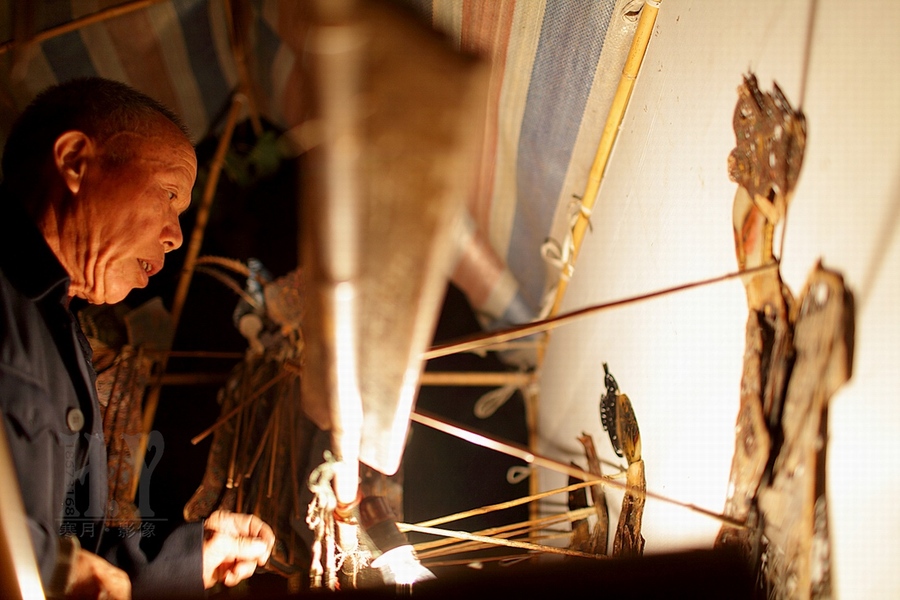Report: More public involvement needed to preserve folk culture

Shadow puppetry and many other art forms are at risk of being lost forever. More public involvement is needed to save them from declining, according to the Report on the Development of China’s Folk Culture 2015.
The Report on the Development of China’s Folk Culture 2015 was released on Jan. 16 in Jinan, capital of Shandong Province.
Zhang Shishan, vice-president of the Institute for Cultural Heritage at Shandong University, led the research team that drafted the report, which focused on the contemporary development of China’s folk culture in rural areas. The “activation and reconstruction of China’s more publicly involved folk culture” has become the most distinctive feature of last year.
In the report, 10 trends in China’s folk culture in 2015 were summarized.
Last year, the concepts of the “Chinese dream” and core socialist values were spread via forms of folk art. Museums and campuses hosted activities related to folk culture, leading to vibrant development. However, the reconstruction of farmer organizations remains an arduous task, according to the report.
Emphasis has also been placed on the cultural construction of traditional festivals and ceremonies. Folk culture is undergoing diversification in the rural areas that are pilots for urbanization.
Meanwhile, increased social involvement is supporting China’s efforts to protect intangible cultural heritage. Over the past decade, regulations on protecting intangible cultural heritage have revitalized folk culture. At the same time, the nation’s border regions are grappling with a number of challenges, such as the protection on ethnic culture, the development of communities, the intervention of external forces as well as self-development.
In addition to identifying these trends, the report suggests five solutions to the problems in China’s folk culture.
Farmer organizations should be promoted and services for festival culture should be built systematically. Holiday incremental mechanism should be introduced at different administrative levels to benefit more people. We should keep broadening our understanding of folk culture, which will play a bigger part in social development. At the same time, more attention should be paid to the efforts to promote folk culture in rural areas in order to achieve sustainable development.
Zhang Qingli is a reporter at the Chinese Social Sciences Today.

 PRINT
PRINT CLOSE
CLOSE